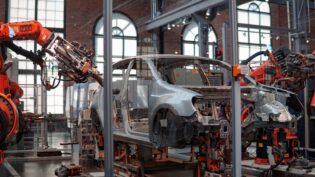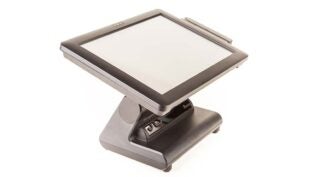
It’s the 21st century and we are all glued to our phones. Between Facebooking, tweeting, and emailing, we generate 2.5 quintillion bytes of data daily. Because of this, consumers are forcing companies to perform in new and innovative ways. And with that comes big data.

According to a Nucleus Research Study, 241 percent ROI can be generated by applying data to business decisions. Already 91 percent of companies have some sort of data managing tool, but the next part is using that data to an advantage. Of the companies that manage data, only 73 percent leverage the data to increase revenue. Lower still, at 43 percent, are the companies that have used data to create and open up entirely new sources of revenue.
Wireless networks allow devices to send and receive data about the performance of the device as it’s being used. Manufactured goods use a combination of sensors and networks to keep in touch with their products. From cell phones to running shoes, this data is incredibly important to businesses.
Data isn’t just useful after the products have left the production floors though. Many companies have benefited from using data to repair and even predict problems in the production process. Raytheon Co. uses automated systems to gather factory floor information. They have identified that if a screw is turned 12 times, rather than the 13 it needs, the entire missile production is halted. Stark Food and Dairy Systems remotely monitors their equipment. Through noise frequencies in the machines, problems can be fixed by technicians before the machines break down, reducing downtime and keeping production smooth.
Big data has given a lot of big ideas to companies, one of the biggest comes from Volvo. Their vision is that by the year 2020 no one is killed or injured in a Volvo vehicle. To reach this lofty goal, Volvo goes through seemingly endless measurements of data from their cars that are already in use. Industry standards require that four or five measurements be taken, but Volvo’s system collects over 400. This data traces mechanical faults to their roots and differs from driver faults and mechanical defects.
Sensor network capabilities are becoming cheaper, easier to manage and ever more advanced giving companies a way to learn not just the “what” but also the “where.” Real time decision making from intelligent GPS reduces downtime, maintains asset integrity and improves the quality of future asset purchases.
Big data is taking us by storm and it seems that it’s the new way to run companies. Take a look at this infographic presented by Tibco for more on manufacturing big data and let us know what you think in the comment section.

Infographic: spotfire.tibco.com
Published: November 13, 2013
3533 Views
3533 Views












